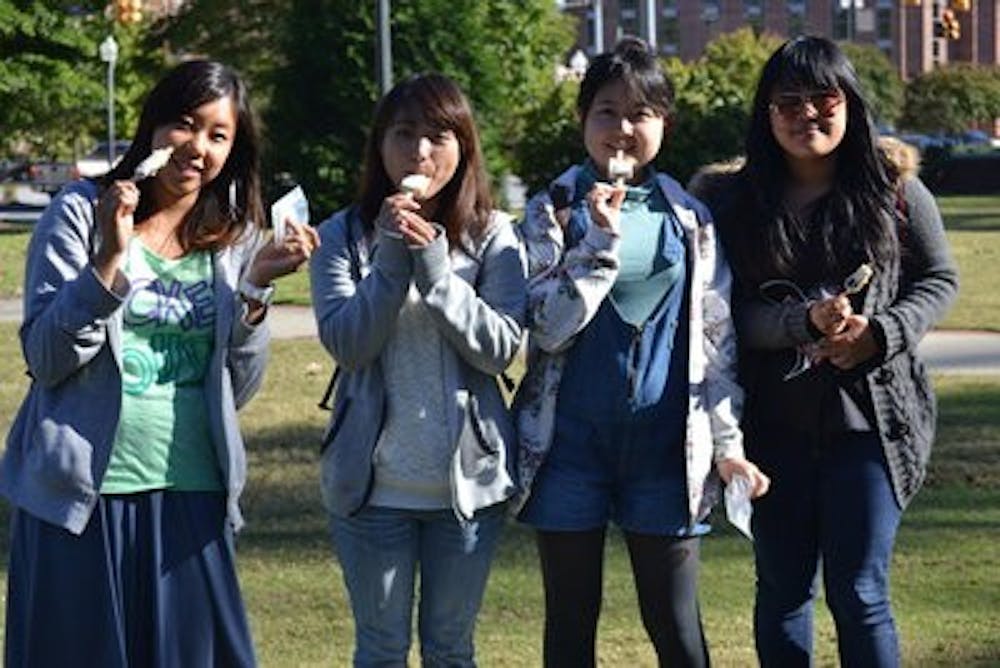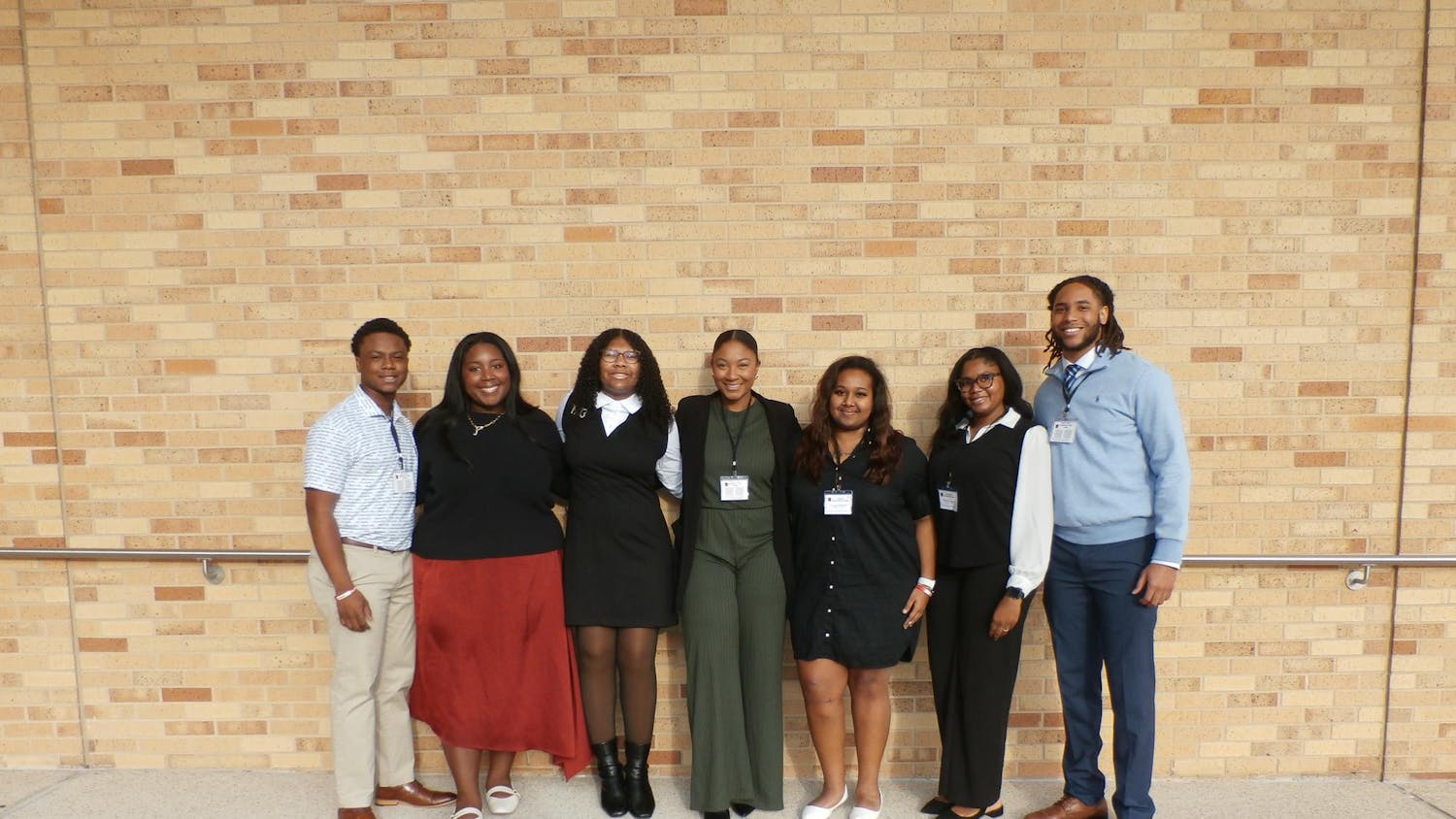When international students step foot on Auburn's campus, they often want a helping hand to help them understand and assimilate into the culture on The Plains.
Auburn University's Intensive English Program (IEP), part of the English as a Second Language Program, along with the International Scholars English Center (ISEC) and international student services aim to help non-English speaking students learn the language and adjust to the culture here.
Auburn requires a score of 550 on the TOEFL test, an English proficiency test, for international undergraduates to be admitted.
According to Mary Diamond, coordinator of ISEC and ESL instructor, the TOEFL is for international students what the ACT and SAT are for domestic students -- the standardized test hurdle they must pass to be admitted.
Just like domestic students, some international students don't test well. That's where the IEP comes in.
"A lot of times, students will come here if they don't meet the requirements," said Carrie Melius, coordinator for the Global Bridge Program and ESL instructor. "They will join our Intensive English Program to build on their English skills. We also offer TOEFL prep classes."
Though some students may need additional practice to get their TOEFL score up, most international students arrive with at least some experience with the language.
"It's rare for us to get a student that has no background (in English) whatsoever," Melius said.
In addition to TOEFL prep, IEP offers classes to help with grammar, writing, reading, vocabulary, listening and speaking.
For international teaching assistants (ITAs), the ESL program offers a training course focused on classroom language skills, teaching techniques, and cultural issues in the American classroom.
According to Melius, once students are here in Auburn, the ESL program's student services provides assistance with necessary arrangements such as airport shuttle pick-up, housing, medical documentation and University applications and paperwork.
While the classroom is a focus for the ESL program and IEP, the coordinators said they realize in order to truly learn the language, it is crucial to understand the underlying culture.
English for Everyday Use (EEU) is one of the non-academic features offered by ISEC.
"(EEU is) more or less about the informal aspects of English," said Paul Sims, adjunct instructor for the ESL program and a master's candidate for adult education. "It's the things that you and I use every day."
These aspects include phrasal verbs, such as "I put up with," and idioms, such as "it's raining cats and dogs," Americans use without realizing how odd it must sound to foreign students.
While the latter phrase is used to describe heavy rain, there is no way for a non-American to understand it without having it explained.
"The idea is when they walk out of the classroom, they hear stuff and understand and that light bulb goes off," Sims said.
EEU is open to the community as well as international students and domestic students. It is meant to be a conversation group for non-English speakers to learn through using the language as well as a way for domestic students to engage with someone from a different culture.
"We encourage any fluent speaker, native or non-native, to attend," Sims said. "It's a very open, relaxed, free zone where they learn how to speak everyday English."
EEU covers a variety of topics, from football to holidays, in order to familiarize international students and non-fluent community members with the cultural aspect of language.
According to Melius and Diamond, the ESL offers periodic events open to all students, including domestics. From a recent popsicle social on Samford Lawn to Halloween parties, there are plenty of opportunities for American and international students to interact and share their cultures.
According to Beth Anne Dawson, coordinator of the International Buddies Program, just like American students who go abroad, international students want to learn this new culture and understand American traditions.
"At the end of the term we take a survey of all our students in the IEP," Dawson said. "A lot of students always say 'I just wish I could have made an American friend.'"
Dawson said the International Buddies Program was created to give international students a chance to integrate into the culture.
It pairs international and local students for one school year, in which they commit to meeting twice a month and staying in touch via text and email.
Chenbin Huang, junior in nutrition and dietetics, participates in the program. He was assigned his American buddy at the buddy reveal party in September.
"We hang out and get lunch," Huang said. "I'm having a birthday party at my place on Friday and I will ask him to come."
According to Dawson, while this casual friendship is a great perk for international students, domestic students benefit too.
Just as international students learn the local culture, they share their native culture with their American buddies.
As for the coordinators of each program, each described their experiences as rewarding.
They are familiar with their students and aim to incorporate them into the Auburn family.
"I love our job. I love it," Diamond said.
For more information on events with the ESL program and opportunities to get involved with the International Buddies Program, check out the program's page at Facebook.com/AuburnESL.
Do you like this story? The Plainsman doesn't accept money from tuition or student fees, and we don't charge a subscription fee. But you can donate to support The Plainsman.





